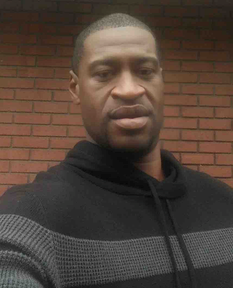 The death of George Floyd in Minneapolis on May 25, 2020 set off a nationwide surge of protests over police brutality against African-Americans. On April 20, 2021, the jury found Derek Chauvin, the police officer who pressed his knee on Floyd’s neck for nine minutes and 29 seconds, guilty of murder in the second and third degrees and manslaughter in the second degree. Worldwide attention to Floyd’s death has focused on racial disparities in the United States as well as on the specific issue of police brutality against African-Americans.
The death of George Floyd in Minneapolis on May 25, 2020 set off a nationwide surge of protests over police brutality against African-Americans. On April 20, 2021, the jury found Derek Chauvin, the police officer who pressed his knee on Floyd’s neck for nine minutes and 29 seconds, guilty of murder in the second and third degrees and manslaughter in the second degree. Worldwide attention to Floyd’s death has focused on racial disparities in the United States as well as on the specific issue of police brutality against African-Americans.
Still, even though the jury has come to its verdict, to understand our history correctly, we must consider a different possible motive for the killing. Chauvin and Floyd had worked as contract security guards at a Latino club. A co-worker, David Pinney, told CBS News that they had “bumped heads.” They quarreled–perhaps about racial issues but very possibly about work procedures, politics, or other matters that were not particularly racial. There might have been insults, threats, or shoving. Chauvin might have somehow been humiliated. The two might have become sworn enemies.1
Then suddenly an opportunity arose for Chauvin to get revenge, under the guise of law enforcement. This would explain Chauvin’s egregious conduct, including pulling Floyd out of the squad car onto the sidewalk, positioning himself with his knee on Floyd’s neck, rejecting two suggestions by Officer Thomas Lane that they turn Floyd onto his side, and persisting even after Floyd had ceased to move and had in fact died. One does not treat a former colleague in this way, unless one is consumed by hatred for him.
This interpretation seems to fit the evidence very neatly. Rather than characterizing Floyd’s death as racist police brutality against a random African-American male, we should, it appears, consider it as a personal revenge killing.
Why are the media silent about this line of inquiry?2
Why is it important to get this diagnosis right?
- It can warn us that people with agendas are trying to manipulate the historical record.
- It would have helped ensure that the trials of the former police officers were as just as possible. Instead of being sentenced to 22 1/2 years in prison, Chauvin might have received a longer sentence.
- An incorrect diagnosis of the killing could lead to legislative mistakes.
- The gruesome image of a white man’s knee on a black man’s neck can fuel racial hatred, and that in turn can harm the innocent. Plenty of other cases of police mistreatment of African-Americans show why every decent person should abhor it.
- The exceptionally graphic specter of random racist police brutality arising from the killing has exacerbated depression and anxiety among African-Americans.
- If we have to change our interpretation, we might become less likely in the future to rush to judgment.
- A nation with a correct shared view of its history can better face its future.3
*****
Kenneth J. Dillon is an historian who writes on science, medicine, and history. See the biosketch at About Us. See also Reparations That Bring Us Together: A Plan.
